
Tucked away in Portugal's eastern Algarve, Tavira has managed to keep its authentic charm whilst quietly becoming one of the region's most desirable places to live. This riverside town offers something increasingly rare along the Portuguese coast - genuine local character without the overdevelopment that's swallowed up so many coastal communities.
The Roman bridge over the Gilão River and traditional cube houses with their pyramid roofs create an atmosphere that feels worlds away from the tourist strips further west. Living in Tavira means proximity to unspoilt beaches along Tavira Island and great weather all year-round.
Is Tavira a good place to live?
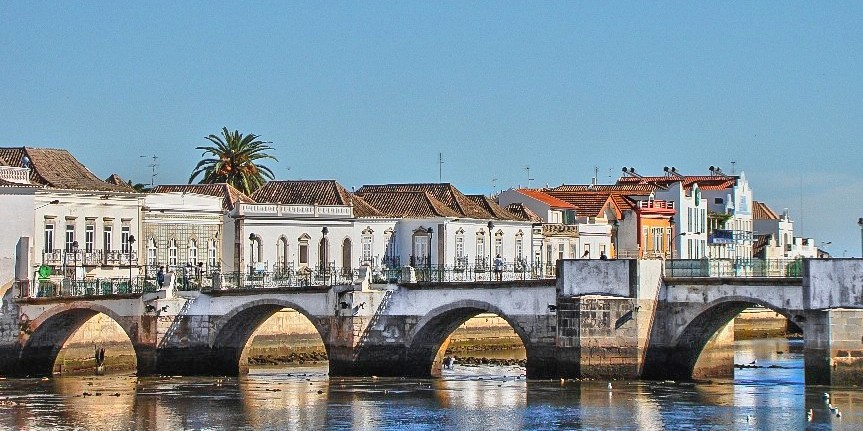
Tavira genuinely ticks most boxes for expats looking to settle in the Algarve. The town manages to feel authentically Portuguese without being stuck in the past. You'll find excellent restaurants serving both traditional cataplana and international cuisine. There's reliable internet for remote workers, and a growing community of English-speaking residents.
The pace of life here is unhurried, yet you're never far from essential services. The historic centre buzzes with local life around the municipal market, whilst the nearby Tavira Island offers some of the Algarve's finest beaches just a short ferry ride away. For those concerned about accessibility, Faro airport sits just 40 minutes away, making visits back home straightforward.
What really sets Tavira apart is its authenticity, making it one of Portugal's most underrated cities. You won't find the overdevelopment that plagues other Algarve towns. Instead, there's a genuine sense of community where locals and expats mingle naturally. The town's commitment to preserving its heritage means strict building regulations keep the skyline low and the architecture consistent, creating that postcard-perfect Portuguese atmosphere.
Is Tavira safe?
Tavira ranks among Portugal's safest towns, with crime rates well below national averages. Petty theft is virtually non-existent, and violent crime is exceptionally rare. The biggest safety concerns tend to involve traffic – drivers can be aggressive, and some roads lack proper lighting at night.
Pros and cons of living in Tavira
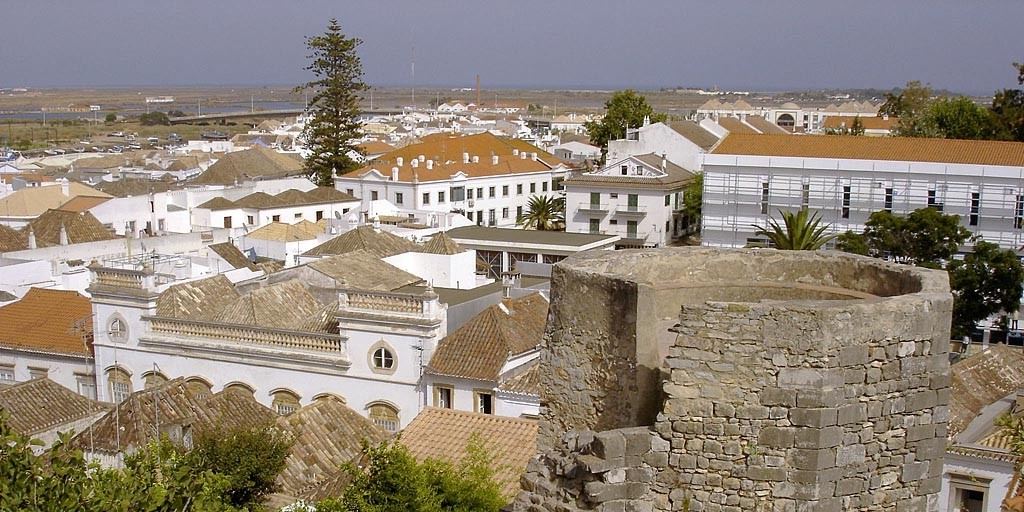
Living in Tavira comes with its fair share of advantages, though like anywhere, it's not without a few quirks worth knowing about beforehand.
Some of the pros of life in Tavira include:
- Authentic Portuguese culture: unlike touristy Albufeira or Lagos, Tavira maintains its traditional character year-round.
- Excellent value for money: your euros stretch considerably further here than in Lisbon or Porto, particularly when it comes to dining out and local services.
- Natural beauty and outdoor lifestyle: between the Ria Formosa Natural Park, pristine beaches and scenic cycling routes through salt pans and orange groves, outdoor enthusiasts never run short of options.
A couple of cons to bear in mind:
- Limited nightlife and entertainment: if you're used to city life, Tavira's quiet evenings might feel restrictive. The town essentially rolls up its pavements by 10 pm, with limited options for late-night entertainment.
- Public transport constraints: getting around without a car can be challenging, particularly for reaching beaches or exploring the wider Algarve.
Is Tavira expensive?
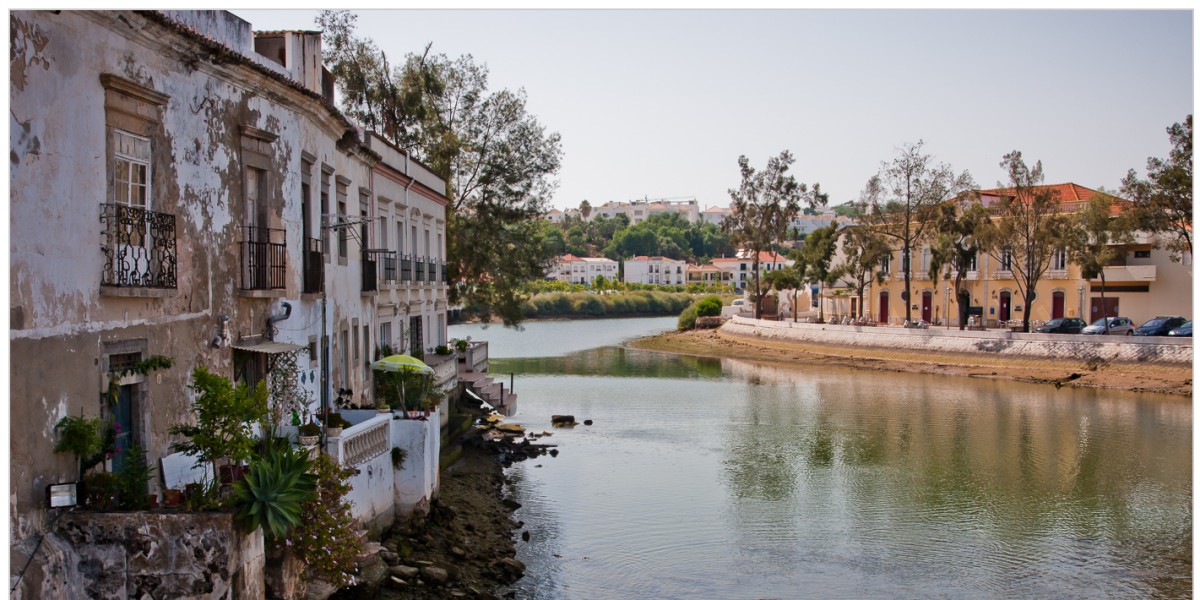
The cost of living in Tavira offers excellent value compared to Portugal's major cities, though costs have crept up as the town's popularity with expats has grown.
As of April 2025, property prices in Tavira averaged around €3,276 per m². Renting an apartment in Tavira costs anything upwards of €700 per month. But be aware that many rentals are short-term let only, especially during the summer months.
Dining out remains refreshingly affordable – expect to pay €12-15 for a solid meal at a local tasca, whilst a coffee costs around €2 and a beer typically runs €2-3. Weekly groceries for a couple generally come to €60-80 if you shop at local markets or budget supermarkets.
Utilities tend to be reasonable, with electricity bills averaging €80-120 monthly, depending on your heating and cooling needs. Internet packages start around €30 monthly for decent speeds. Overall, a comfortable lifestyle in Tavira can be maintained on €2,000 monthly for a couple, including rent.
Getting to Tavira Island

From Tavira centre, you have two main options. The most convenient is the ferry terminal right on the River Gilão in the town centre – just a few minutes' walk from Praça da República. This central terminal operates regular services to Tavira Island during the summer months. Alternatively, there's the popular route involving a pleasant 15-minute walk along the riverfront to the Quatro Águas ferry terminal. Follow the signs from Praça da República towards the salt pans – it's a lovely stroll past traditional fishing boats and through the Ria Formosa nature reserve. The passenger ferry runs every 30 minutes during summer and costs around €2.50 return. Journey time to the island is just 10 minutes.
If you're staying in Santa Luzia, you've got the easiest access of all. The village has its own ferry service running to Praia da Terra Estreita, from the small harbour near the octopus statue. Ferries operate every 15 minutes in peak season, with the journey taking about 10 minutes. This route tends to be less crowded than the main Quatro Águas service.
From Cabanas de Tavira, you can catch the regular ferry service that runs to Cabanas Beach on the barrier island. While technically a different section of the same island system, this gives you access to equally beautiful beaches with fewer crowds. The ferry runs every 15 minutes during summer from the Cabanas pier.
What is Tavira like in winter?
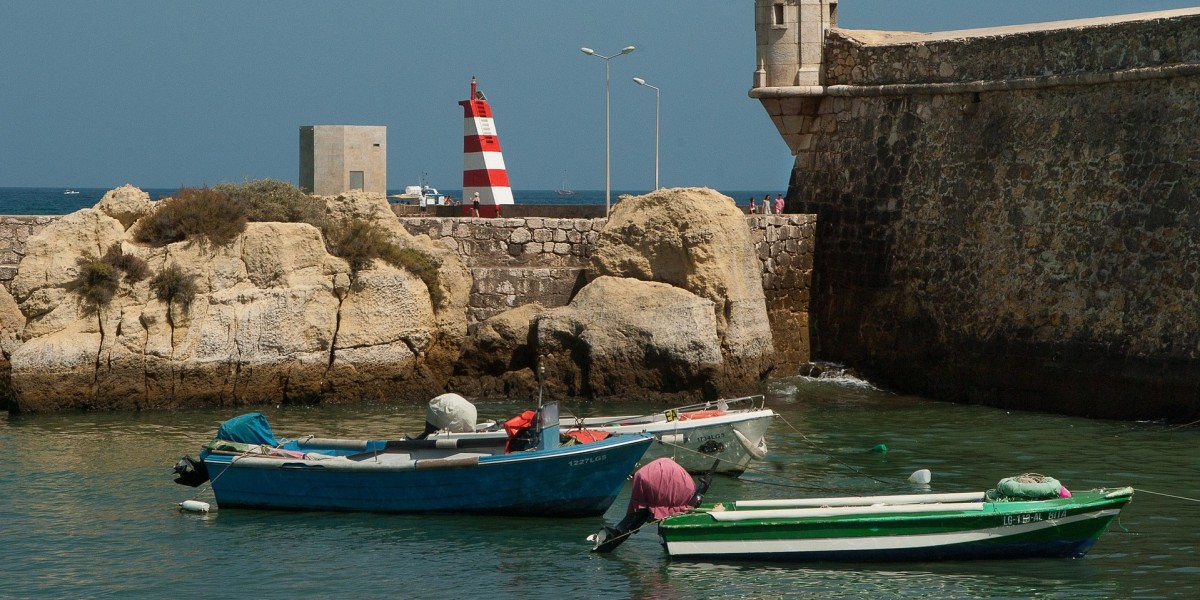
Winter in Tavira offers a completely different but equally appealing experience. Temperatures rarely drop below 8°C, with daytime highs often reaching 15-18°C. The town takes on a more intimate feel as tourist crowds disappear, revealing authentic local life.
Many restaurants and shops that close during August's peak heat reopen for the cooler months. Plus, cultural events like traditional festivals become more frequent. Rain does arrive – typically between November and February – but rarely lasts more than a few days at a stretch.
The real bonus is how affordable everything becomes. Restaurant prices drop, accommodation costs plummet, and locals have more time to chat.
Best neighbourhoods in Tavira
Tavira's compact size means most areas are within walking distance of the centre, though each neighbourhood has distinct characteristics worth considering. The town is also growing, with new Tavira builds in the works that comprise apartments with a shared swimming pool and gardens.
Historic centre
The area around Praça da República offers the most authentic experience, with traditional architecture and easy access to restaurants, shops, and cultural sites. Properties here command premium prices, but you're living in postcard Portugal.
- Property for sale in Tavira centre
- Long-term rentals in Tavira centre
- Holiday rentals in Tavira centre
Santa Luzia
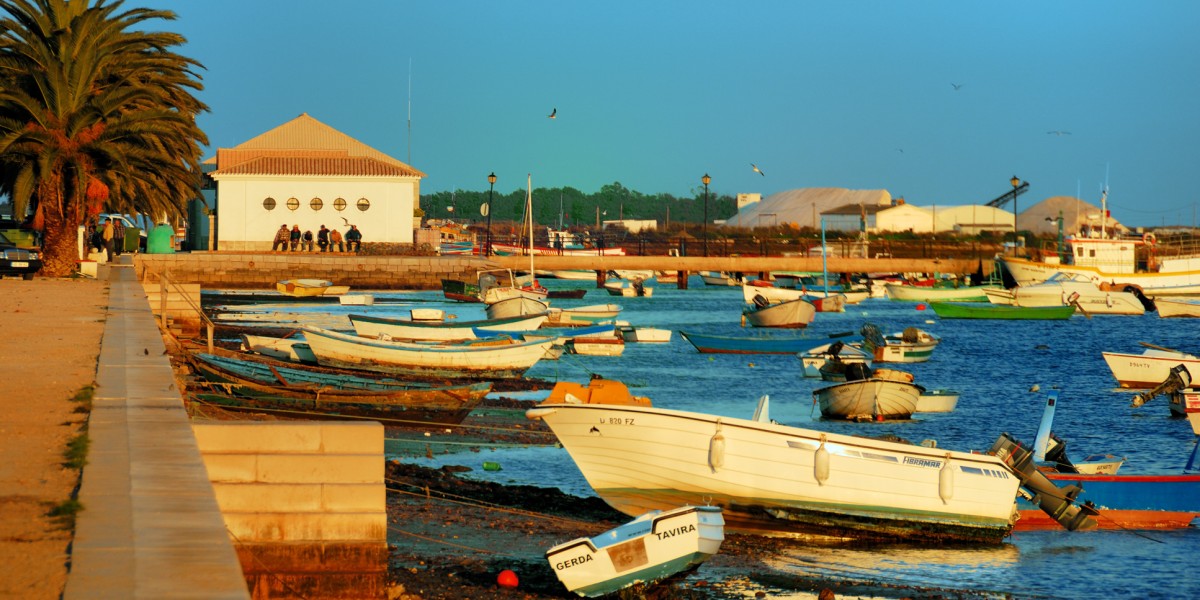
This fishing village just east of town provides a quieter alternative whilst remaining well-connected. Known locally as the "octopus capital," it offers waterfront living with excellent seafood restaurants and traditional marisqueiras. However, Santa Luzia has the most expensive property in Tavira.
Luz de Tavira
For those seeking rural tranquillity, this area provides countryside living just 10 minutes from town. Properties here, including traditional quintas with land, are slightly cheaper, averaging €2,900 per m² in May 2025.
- Property for sale in Luz de Tavira
- Long-term rentals in Luz de Tavira
- Holiday rentals in Luz de Tavira
Conceição e Cabanas de Tavira

This area sits further east along the coast, offering proper beachfront living as well as villas slightly further inland, complete with a pool. Cabanas Beach has even been recognised as one of the cleanest beaches on earth.
- Property for sale in Cabanas de Tavira
- Long-term rentals in Cabanas de Tavira
- Holiday rentals in Cabanas de Tavira
Expat life in Tavira
Tavira's expat community has grown steadily, creating a welcoming environment for newcomers without overwhelming the local culture. The Tavira Expats network organises regular social events, from coffee mornings to hiking groups, making integration easier for new arrivals. The expat demographic tends toward retirees and remote workers, creating a mature, settled community rather than a transient party scene.
English-speaking services are increasingly available – several estate agents, lawyers, and accountants cater specifically to expat needs, whilst the health centre has English-speaking staff. There are also language schools where you can sign up for Portuguese language classes.
Banking remains straightforward, with most major Portuguese banks often offering English-language services. Internet banking works smoothly, and ATMs are plentiful throughout town. For bureaucratic matters, the Espaço do Cidadão provides one-stop government services, though bringing a Portuguese-speaking friend initially helps navigate the system.
Which is better, Tavira or Faro?
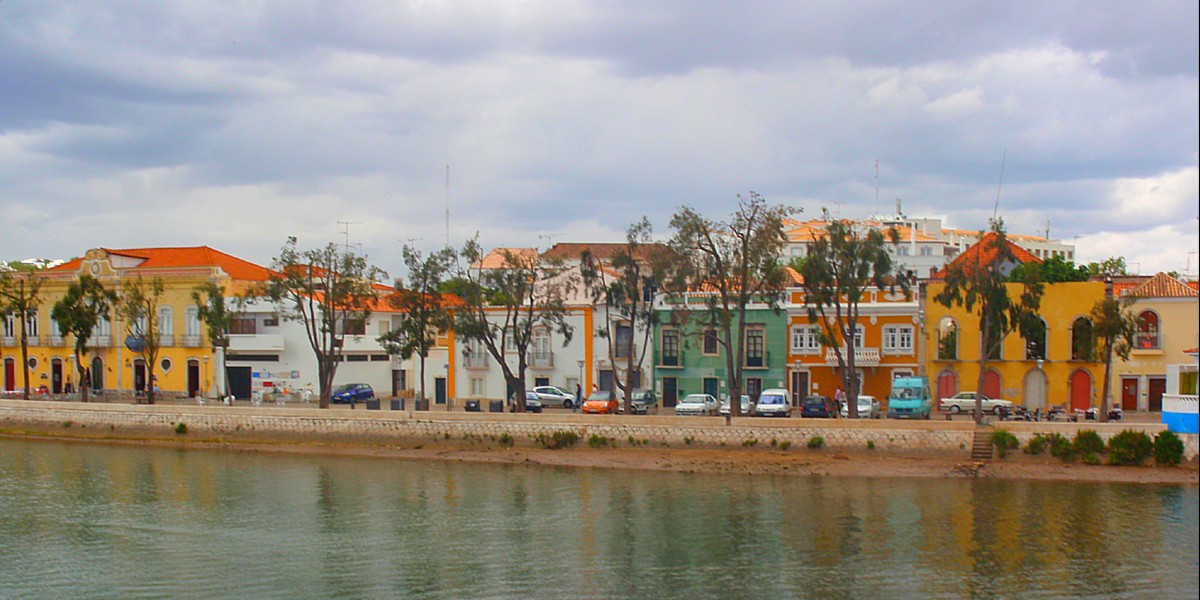
The choice between relocating to Tavira and living in Faro largely depends on your lifestyle priorities. Faro, as the Algarve's capital, offers urban conveniences that Tavira simply can't match. It has better transport links, more job opportunities, larger shopping centres, and a more vibrant nightlife scene. The university brings young energy, whilst the airport location makes travel effortless.
However, Tavira wins hands-down for quality of life and authenticity. Property prices in Faro average €3,144 per m² – slightly lower than Tavira. However, you're trading character for convenience. Faro feels more anonymous, whilst Tavira maintains that small-town charm where shopkeepers remember your name.
Those needing urban amenities, regular flights, or professional networking opportunities might find Faro more practical. Many expats actually use Faro for its services whilst living in Tavira – the 40-minute drive makes this perfectly manageable.
Living in Silves vs. living in Tavira
Silves offers an interesting alternative for those considering Tavira, sitting inland about an hour west. The main trade-off is accessibility to beaches – you're looking at 20-30 minutes to reach the coast, compared to Tavira's 10-minute ferry ride to Tavira Island.
However, once the Moorish capital of the Algarve, Silves maintains more historical character than Tavira, dominated by its impressive red sandstone castle and cathedral. The town feels less touristy, with fewer English-speaking services but stronger integration opportunities with local communities.
For those prioritising historical character and lower costs over beach access, Silves presents compelling advantages. However, Tavira's coastal location and growing expat infrastructure make it a more practical choice for most international residents seeking the Algarve lifestyle.
